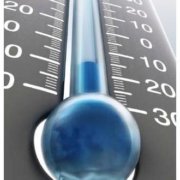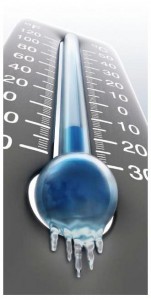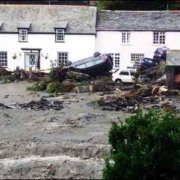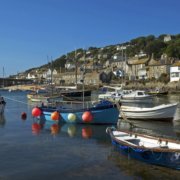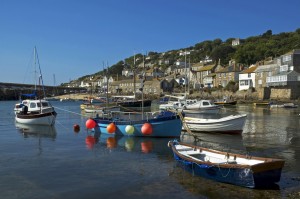UK Holiday Home Owner Winter Advice – Burst And Frozen Pipes
Don’t get caught out by freezing weather this winter – Tips to avoid burst pipes for UK Holiday Home Owners
Three of the past four winters have seen the UK suffer a prolonged big freeze which has affected thousands of holiday homes, with freezing temperatures leading to burst pipes and extensive property damage throughout the UK.
Escape of water can devastate a holiday home and is one of the most common holiday home insurance claims. Take some simple steps to protect your property from escape of water damage this winter..!
Here are some useful prevention tips as well as some advice on what to do in the event of you or your guests discovering burst and frozen pipes in your furnished holiday let.
Burst Pipe Prevention Tips
As frozen pipes often burst, winter care is crucial. Try the following care tips:
Policy Conditions
Adhere to your holiday home insurance policy unoccupancy conditions including those regarding:
1. Regular inspections
2. Heating | Utilities during the winter
Heating System Maintenance
- Make sure your heating system is maintained in accordance with the manufacturers recommendations.
Leave your heating on in sub zero temperatures
- This means that water in pipes will remain at a constant temperature and should not get cold enough to freeze. Also remember to remove the hatch to your loft so that warm air can circulate. Please note that leaving your heating on frost stat alone may not be sufficient as with most makes of combi boiler this is designed only to protect the boiler itself from freezing.
Condensing boilers / condensate pipes freezing
- If you have a condensing type boiler and the condensate drain pipe runs to the exterior of your property, ensure that it has been installed in accordance with the boiler manufacturer’s instructions. Such external pipes if not of large enough diameter (normally at least 32mm), properly installed and insulated can freeze up in cold weather causing the boiler to stop working.
Leaving your holiday home unoccupied for an extended period this winter?
-
Drain down your entire water system and turn off the water supply at the main stop cock situated outside of your premises.
-
If you are leaving your holiday home unoccupied – again consider leaving heating on at a constant low level 24 hours a day, this means that water in pipes will remain at a constant temperature and should not get cold enough to freeze. Also remember to remove the hatch to your loft so that warm air can circulate. (This may appear environmentally unfriendly or a little extravagant during these economic conditions, but it might mean the difference between a ruined home or a dry one when you return from your break)
-
Have someone check on your holiday home regularly in between lets, if a problem is spotted early the damage could be much less.
Lots of lagging
One of the main causes of freezing pipes is lack of lagging – so anyone attempting to do a bit of plumbing themselves, should bear in mind that pipes and tanks in the loft, or anywhere else liable to freeze, need to be properly lagged.
Insulate on top of pipes in your loft or attic
- Insulation should be laid on top of pipes rather than underneath them, as insulation laid below the pipes will prevent rising heat reaching them.
Water tanks in lofts / attics
- If located on the floor of your loft or attic and are situated directly above a heated room consider insulating up to, around and above the tank but not underneath it, in order to allow the heat from below to rise and keep the water temperature above freezing. However if your water tanks raised above the floor of your loft or attic should also be insulated underneath, as well as on the tops and the sides.
Find the stop cock
-
Before cold weather arrives, find your main stop cock and make sure you can turn it on or off. It’s generally found underneath your kitchen sink. There should also be an access point for a stop cock outside your home (normally near your driveway) so if all else fails you can turn off the supply there. Leave clear instructions on the location of your stop cock for your guests, cleaner and anyone else who may inspect your property in your absence.
Check the taps
- Repair any dripping taps and don’t forget to insulate outside taps in your garden or garage (or turn off the water supply to them altogether)
Oil / LPG fuel heating systems
- Do not allow the level of oil or gas in your tank to fall below a level that would put you at risk of running out during a sustained period of severe weather which may hamper deliveries. Take precautions and have an alternative heating source available incase your supply fails. Heating oil itself can freeze in extremely cold weather, speak to your supplier for additional advice.
Night Storage Heaters
- Unless they are of a combination type which include a temperature controlled secondary instant heat source such as an inbuilt convector heater, do not rely upon night storage heaters alone to to prevent damage in freezing conditions. Consider treating the property as if it were unheated when unoccupied, i.e. turn off and drain the water system.
Your cover …
Damage caused by freezing water and leaking or “escaping” water from tanks, pipes, or heating systems is covered as standard under Boshers Holiday Home Insurance contents and buildings insurance policies.
- A frozen pipe can cause it to burst causing thawed water to come pouring from the break. Please follow these steps if you discover a frozen pipe
- If taps aren’t working, showers aren’t running and you have problems with your heating it could be you have frozen pipes and it’s likely you will already know about it!
- If you’re not sure check all the taps in your home, especially those hidden away outdoors or in the garage, are they running freely? And what about water fountains and features in the garden? It could be they have frozen and you didn’t even know!
Can I help prevent them bursting?
Thawing out …
- Open the tap nearest to the part of the pipe you think is frozen so the water can flow through when it has melted. Thaw the ice in the pipe with a hot water bottle or hairdryer (taking care to keep it well away from any water), beginning from the tap end and working back toward the cold water tank. Never use a heat gun or blow torch.
What to do if you discover a burst pipe …
A burst pipe can cause serious damage to your home’s structure and electrical wiring. Please follow these steps if you discover a burst pipe …
- Turn off the water at the main stop cock (it’s generally found underneath your kitchen sink). By turning off the water you will reduce the amount of water which can escape and so reduce the water damage to your home.
- Switch off central heating and any other water heating installations at the same time to avoid further damage and open all taps to drain the system.
- If water leaks near your electrics or electrical appliances, switch off the mains immediately. If it is wet, don’t touch them.
- Call professional tradesmen as soon as possible to make repairs.
To make a claim on your Boshers holiday home insurance policy, call the 24 hour claims line on 0845 603 8381 or call us at Boshers Ltd on 01237 429444 Open 08:30-17:00 Monday -Friday.
These guidelines have been compiled by Boshers Ltd | holiday home insurance specialists for the benefit of our holiday home insurance policyholders. This advice is provided to you as best practice guidance. Please check your policy document for details of any further conditions specific to your policy. This document is an outline of some steps which can be taken to protect your property and is not definitive. No legal responsibility is accepted by Boshers Ltd for any error or omission or misleading statement contained in this document.

